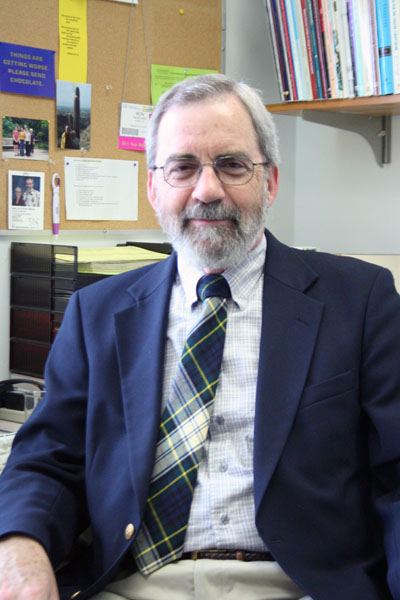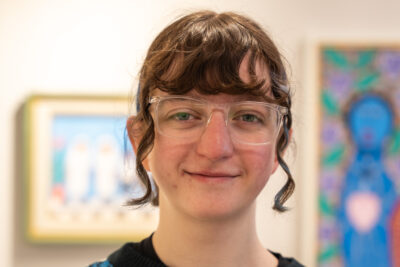A few years ago we heard that people of a more conservative political or theological persuasion felt uncomfortable or even unwelcome at Goshen College. There was at least one instance of a politician who declined an invitation to speak at Goshen College because of this perception.
More recently steps have been taken to make the college hospitable to everyone. My concern is that in making it more hospitable to some, we have made it less welcoming to others.I would like it to be truly welcoming to all. What does that mean?
In 2001, while leading Study-Service Term in Indonesia, my wife Sally Jo and I were invited to the home of one of our lecturers for a meal. The hospitality that we were shown was memorable.
Our host was a Muslim woman who delighted in sharing her experiences with us. Before the meal, we relaxed on her “pendopo” (front veranda), sipping refreshing fruit juice, looking at photos of her pilgrimage to Mecca. She knew that we were Christians, but there was no hesitation in sharing our very personal and meaningful spiritual experiences from different backgrounds and perspectives.
When we sat down to eat, she turned to me and asked me to pray. I was not expecting that, but I did manage to find words that I felt represented all of us. Being asked to pray in a Muslim home made me feel very welcomed.
We can all remember situations in which we have felt welcome or unwelcome. What makes the difference?
I feel welcome when I am treated as an equal, when my perspectives are valued with no expectation of change or when there is a focus on shared interests or interdependence. I feel unwelcome when I am not included in a conversation or ignored, when my perspectives are stereotyped, characterized or objectified unfairly, or when unfamiliar or technical language is used without explanation.
Clearly those who are excluded from our midst, for whatever reason, are unwelcome.
Recent advertisements for Goshen College have featured us as a welcoming college, and we are set to kick off a “rebranding” of our institution as a place that focuses on peace and peacemaking. We claim to be an inclusive campus, seeking ways to include diverse cultures and ethnicities, but we still discriminate when it comes to hiring people of diverse faiths or sexual orientation.
When we draw boundaries and exclude certain people from church ministry – from teaching positions or personal interactions with us – then we are no longer welcoming. This often happens because we fear the person who is different from ourselves. We fear that they will want to “convert” us or change our lifestyle, and we may cease to be who we are.
However, I have found that when I am able to “welcome the stranger” in a truly mutual way, we both gain. It is in these situations that my faith in God and my fellow human beings is strengthened and wisdom is gained. It is my hope that we as an institution will live up to our billing.
Ron Milne is professor of mathematics at Goshen College.



